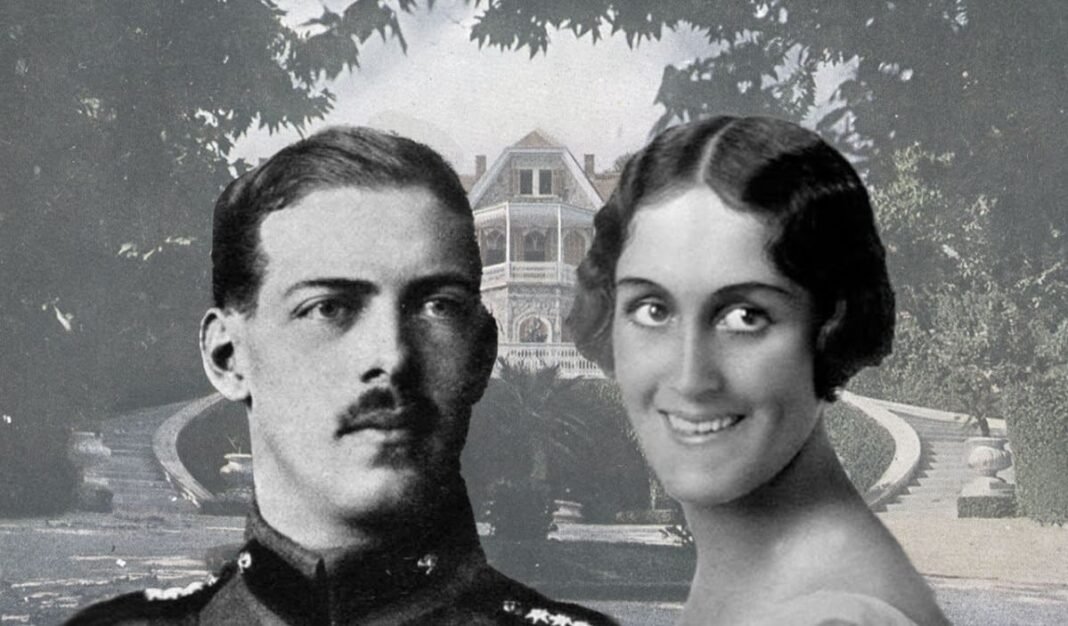
The love story of King Alexander of Greece and Aspasia Manou is a tale of forbidden romance that defied a powerful royal dynasty and became a pivotal chapter in 20th-century Greek history.
Their marriage, which took place amidst the political turmoil of the National Division, challenged monarchical tradition and intertwined the personal with the political in a way that captivated a nation.
The political and personal divide
The backdrop to their romance was the National Division, a bitter political conflict between Prime Minister Eleftherios Venizelos and King Constantine I over Greece’s role in World War I. When an Anglo-French intervention led to Constantine’s exile in 1917, his son, Prince Alexander, was placed on the throne as a 24-year-old king. Alexander’s reign was intended to be a temporary solution, but his heart had other plans.
It was during this period that Alexander met Aspasia Manou. According to his biographer Christos Zalokostas, they first met at a dinner party in January 1915. Alexander had remembered her as a young, dark-haired girl he had once seen in the royal gardens. Now an elegant 18-year-old, she captivated him instantly.
Her beauty, which he described as having “the classic feature of Greek beauty” and a voice that “sounded like music,” deeply enamored him. He was determined to win her love, and a great romance blossomed between them.
A forbidden marriage and royal fury

The love story quickly became a scandal. Aspasia Manou was a “common mortal,” a daughter of a colonel with no royal lineage. The idea of her marrying a king was anathema to the royal family, particularly to the exiled Queen Sophia.
In letters from her exile, Queen Sophia desperately tried to prevent the marriage. Her objections were rooted in two fears:
A Threat to Royal Blood: As a descendant of a long line of emperors, Sophia was terrified at the thought of a non-royal entering the family. Such a morganatic marriage, where a person of lower rank marries a royal, was considered an outrage to the dynasty’s rigid customs.
A Political Weapon for Venizelos: Sophia and Constantine feared that the marriage would become a powerful political tool for Prime Minister Venizelos. They believed he would use it to solidify Alexander’s reign and establish a new Greek dynasty, ultimately preventing Constantine and his eldest son, George, from ever returning to the throne.
King Alexander and Aspasia Manou’s secret ceremony and the unjust end
Despite the family’s intense pressure, Alexander was unwavering. In a letter to Venizelos in May 1919, he sought the prime minister’s help in securing official approval for his marriage. He argued that marrying a Greek woman would resonate with the people and “ignite Greek self-love.” He then took matters into his own hands.
In November 1919, Alexander and Aspasia Manou married in a secret ceremony. It was a stark contrast to a royal wedding—there were no crowds, no grand procession, only a priest and a witness. The marriage was never officially recognized by the royal family, who continued to treat Aspasia as an outsider. For over fifty years, she was the “black sheep” of the dynasty, with relatives “ostentatiously” turning their backs on her.
Tragedy struck less than a year later. On October 12, 1920, while in the royal gardens of Tatoi, Alexander was bitten by a pet monkey while trying to separate it from his dog. The seemingly minor wound led to a fatal case of sepsis.
He died at the age of just 27. Five months later, Aspasia gave birth to their daughter, Princess Alexandra. The royal family never formally accepted Alexander’s reign, his marriage, or his daughter. His grave in Tatoi, just outside Athens, reflects this final snub; his tomb does not bear the formal title “King of the Hellenes,” a clear sign that his parents viewed him as a mere regent.
Aspasia Manou died in 1972 in Venice.
The article draws from a report in in.gr by Giannis Diamantis
Related: The Referendum That Abolished Monarchy in Greece


